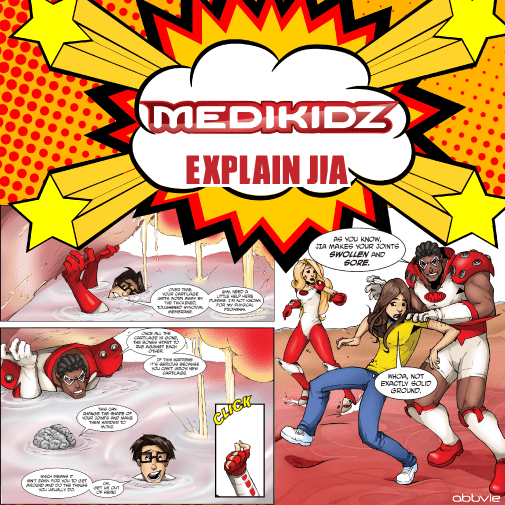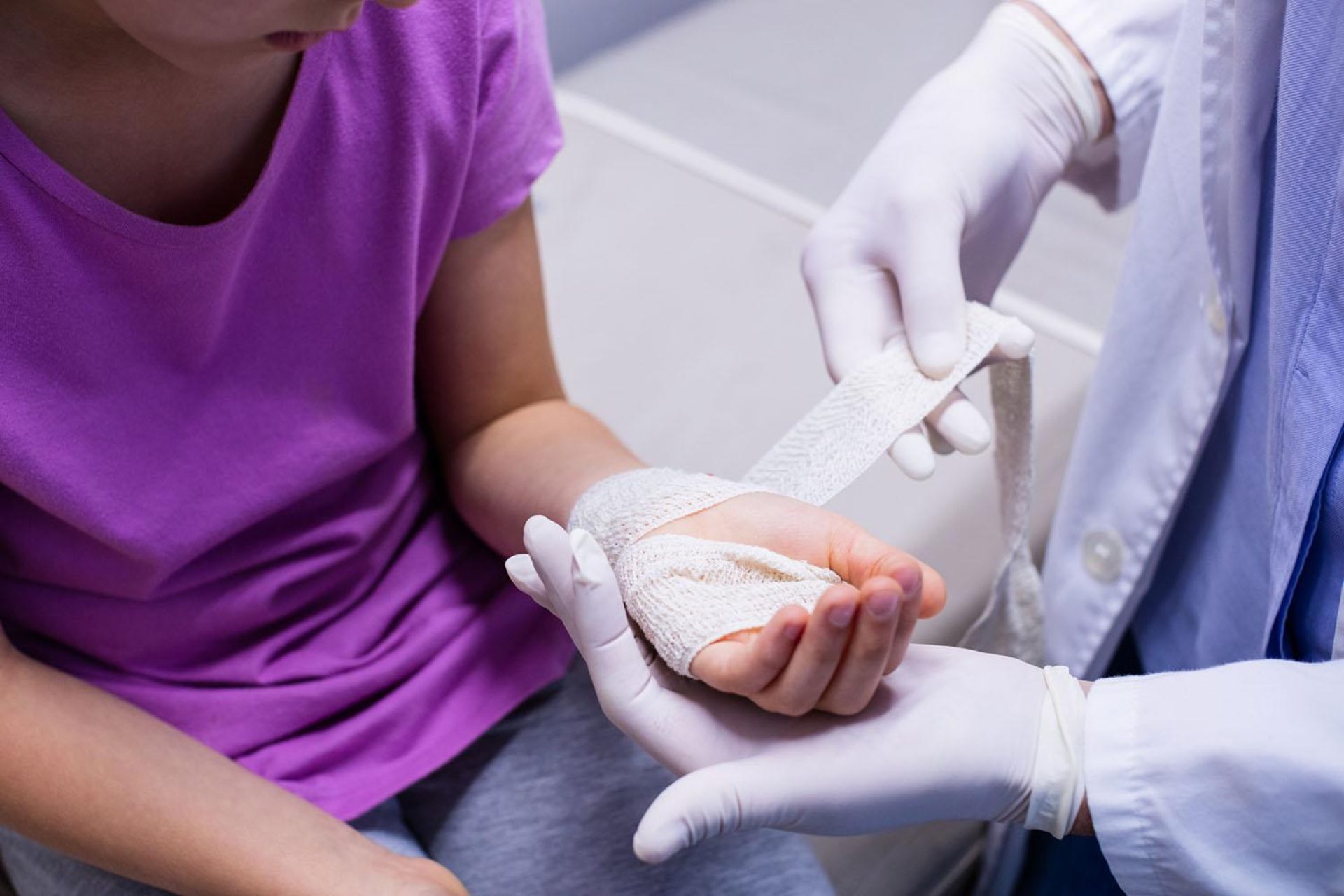March is Childhood Arthritis Awareness Month which makes it the perfect time to talk about Juvenile Arthritis.
When I was asked if I’d be interested in writing an article about the MedKidz comic book which helps kids (and adults!) better understand childhood arthritis, the first thing that struck me was the fact that it hadn’t occurred to me that kids can actually get arthritis. I felt ignorant for not knowing, but apparently I am not alone. There is a misconception that arthritis is an ‘old person’ disease…except it isn’t.
Over 24,000 Canadian kids and teens are living with arthritis. Who knew?
I had the opportunity to interview Dr. Claire LeBlanc MD, FRCPC, Associate Professor Pediatrics at McGill University, who also works in the Division of Rheumatology at the Montreal Children’s Hospital.
When I first asked Dr. LeBlanc about the prevalence of arthritis in children, she explained it is as common as type I diabetes in children. She explained further that there are various forms of juvenile arthritis, with Oligo Articular being the most common. This type of arthritis affects very few joints. The least common type is rheumatoid factor positive juvenile arthritis which is similar to adult rheumatoid arthritis.
I asked Dr. LeBlanc about what symptoms are first experienced by kids with arthritis. She explained that in 40-50% of cases of juvenile arthritis, the most common age group affected is 2-3 years olds. She further explained that the very little ones don’t generally complain verbally but that walking may be delayed, they may prefer to be carried – especially in the morning – or someone will notice a crooked knee.
Older kids may have difficulty in gym class and those with finger and wrist arthritis may struggle doing up buttons, opening jars or even doors. She also noted symptoms may come on gradually. If parents notice these types of issues, it’s worth asking the doctor whether arthritis could be the cause.
Dr. LeBlanc cautions that there is no lab test to diagnose arthritis, so if arthritis is suspected, it is important to see a qualified pediatric rheumatologist. She also explains there are lots of causes of joint swelling and pain that are NOT juvenile arthritis-related.
So what are the biggest challenges faced by kids with arthritis?
Dr. LeBlanc says it’s being able to get back to their regular activities. The good news is with the proper treatment, kids can get their arthritis under control and go back to playing with their friends – the way they used to. And yes, this includes sports and exercise 🙂
In fact, as a sports medicine physician, Dr. LeBlanc notices that kids with arthritis are often less active than their peers because parents and schools want to protect these children. In truth, they may actually need the physical activity and exercise even more than their non-arthritic friends. They need to build muscle and bone strength which helps their joints. They also need good respiratory and cardio fitness. While it is essential for kids to get guidance from a qualified medical professional to ensure they are ok to do the desired activities, Dr. LeBlanc notes that with proper care and treatment, kids should be able to get back to their regular activities. Being able to do so allows them to achieve whatever dreams they want to pursue:)
When I asked about resources for kids and families, Dr. LeBlanc highly recommends the Arthritis Society’s website, which offers a lot of information and helpful links.


She also recommends the MediKidz Explain JIA comic book which was developed by the Arthritis Society together with Abbvie Canada to teach about childhood arthritis and about what to expect. She actually hands it out to school-aged and teen patients in her clinic 🙂 I can share that I personally looked through the comic and learned quite a bit, so I would even recommend it for parents! MediKidz can be downloaded (for free) at arthritis.ca/childhood.
She also told me about Arthritis Camp and how amazing and helpful it has been for kids with Arthritis. You can get more information about that as well on the Arthritis Society’s website.
Finally, Dr. LeBlanc also recommends that parents visit the Canadian Paediatric Society website at cps.ca, especially the sections on caring for kids and tips for families.
So, in honour of Arthritis Awareness Month, I know that I have informed myself and am now much more aware about childhood arthritis…and maybe now you are as well 😉
Tanya
Disclosure: As with all sponsored posts, I will only ever share with you products and/or services I believe in. All opinions contained within are my own and cannot be bought ![]()


No comment yet, add your voice below!